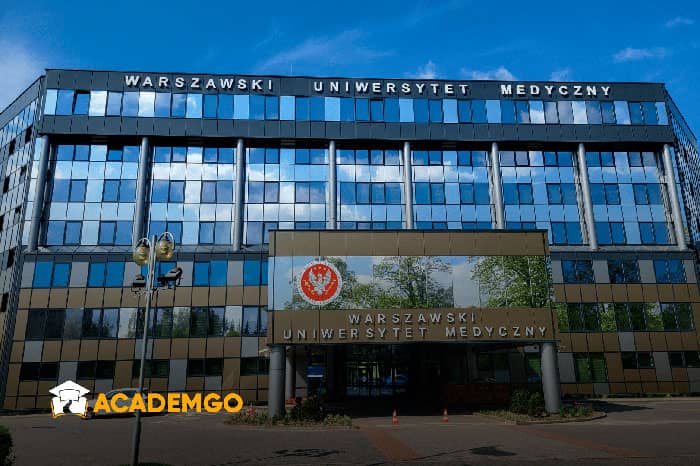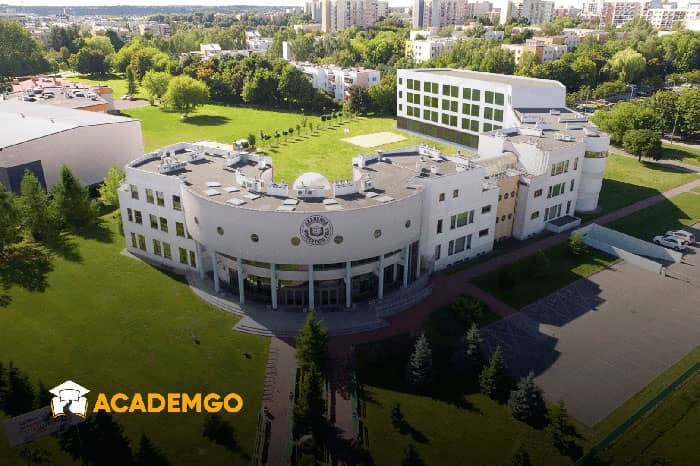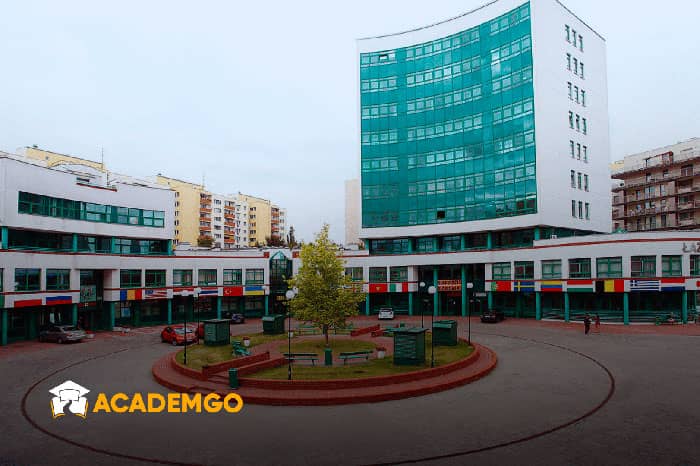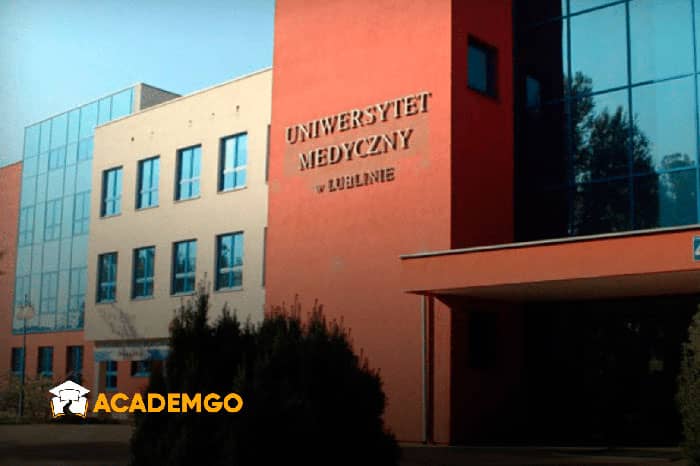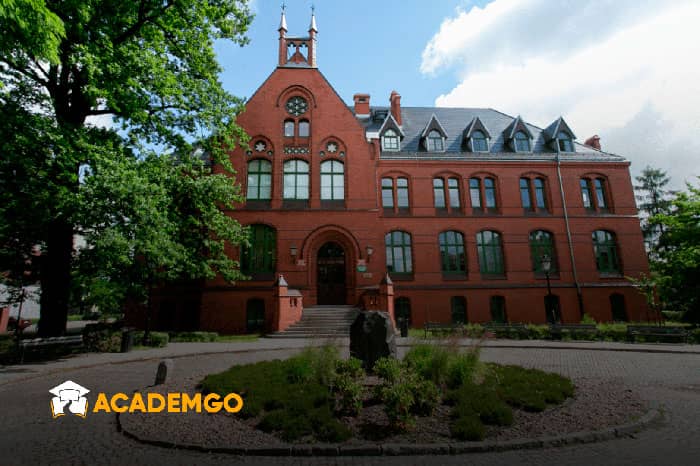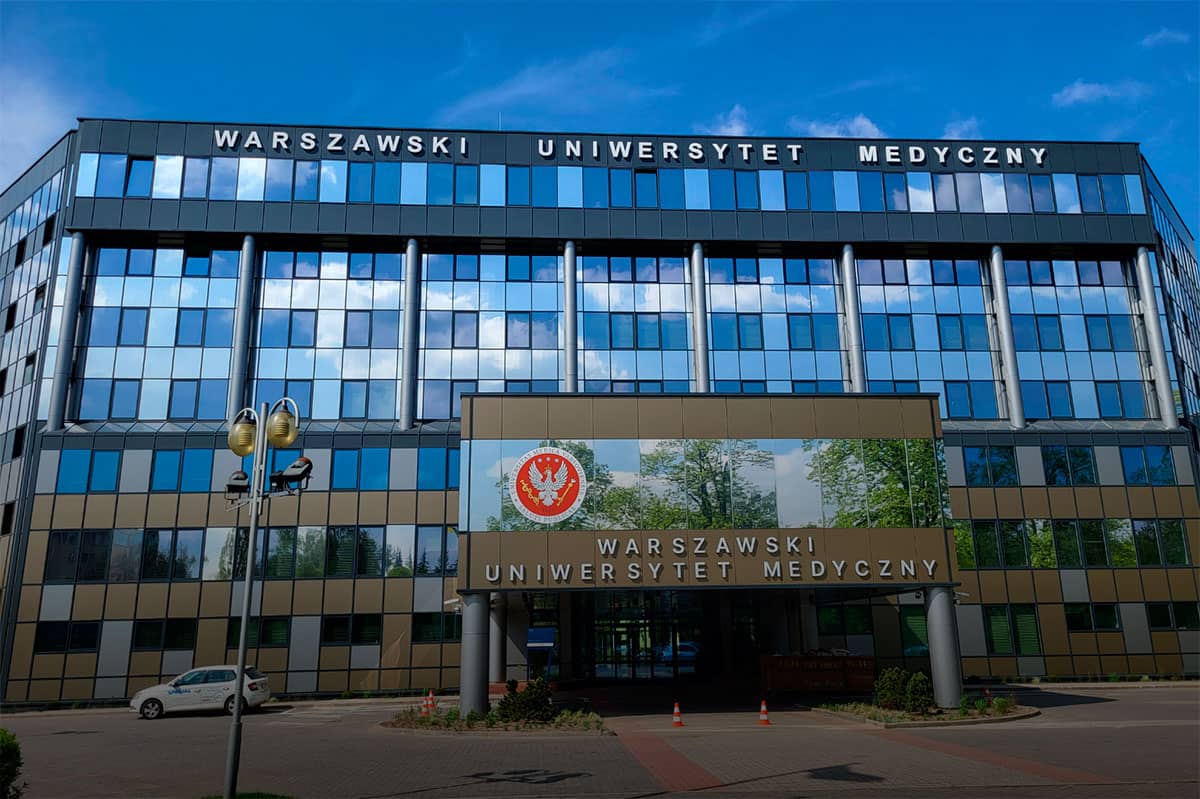
Medical Universities in Poland: English MD & Fees
Becoming a doctor does not have to result in a $200,000 debt. Poland offers world-class medical education (MD, Dentistry, Nursing) taught 100% in English at a fraction of the cost of Western universities.
Why Medicine in Poland?
Studying at a medical university in Poland is not just about earning a diploma — it’s a true gateway to an international medical career.
Global Recognition
Degrees are recognized in the EU, USA (USMLE), Canada (MCCQE), and UK. You can practice medicine globally.
Save up to 70%
Tuition starts at €11,000 per year. In the USA or UK, you would pay 4 times more for the same qualification.
100% English
You do not need to speak Polish to study. All lectures, exams, and labs are conducted entirely in English.
US & Canadian Community
Poland is a top destination for North American students. You will build a network with future doctors from the USA and Canada.
Erasmus+ Mobility
As an EU student, you can complete clinical rotations in Germany, Italy, or France for free via the Erasmus program.
Top Medical Universities for International Students
Here is a selection of the most reputable and in-demand medical universities in Poland offering high-quality education and English-taught programs:
Am I Eligible for Medical School in Poland?
Admission Process: Direct Entry & Entrance Exams
Unlike medical schools in the US or Canada, Polish universities follow a Direct Entry system. You do not need a Bachelor's degree (Pre-med) to apply. You start your 6-year MD program immediately after High School.
1️⃣ High School Diploma (Science Focus)
To qualify, you must have strong grades in Biology and Chemistry(mandatory).
- Third Subject: Usually Physics or Mathematics.
- Minimum Grades: Universities look for a "B" average or higher.
- Exemptions: Holders of IB, EB diplomas, or UK A-Levels (with high scores in Science) are often exempt from the entrance exam.
2️⃣ The Entrance Exam (Online)
Top universities (like WUM, Jagiellonian, Poznan) conduct their own internal exams. You don't need to fly to Poland — most exams are held online.
- Format: 60–100 multiple-choice questions (MCQ) on High School Biology and Chemistry.
- Reasoning: Some schools also test logical thinking and decision-making skills.
3️⃣ The Interview (Zoom/Skype)
If you pass the written test, you will be invited to an online interview.
- Goal: The Dean’s commission checks your motivation ("Why medicine?") and your psychological readiness to become a doctor.
4️⃣ English Proficiency
Non-native speakers need an international certificate.
- IELTS: Minimum 6.5.
- TOEFL iBT: Minimum 87.
- Note: If your high school education was in English, you are usually exempt.
❗️Good News for US/Canadian Students: You generally do NOT need the MCAT for admission. However, if you have a high MCAT or BMAT score, some universities may waive the entrance exam and accept you automatically.
Available Medical Programs in English (MD, DDS, Nursing)
Polish universities offer a wide range of English-taught programs. Whether you want to be a Surgeon or a Pharmacist, the curriculum meets strict EU standards.
Tuition Fees at Medical Universities in Poland
Why pay $60,000 a year in the USA or UK? In Poland, you get the same European degree for a fraction of the cost. Here is the transparent breakdown of cost of studying for medical programmes.
| Program | Degree | Duration | Price Range (Avg.) |
|---|---|---|---|
Medicine | MD | 6 Years | €11000–€15500 |
Dentistry | DDS | 5 Years | €12500–€16000 |
Pharmacy | Pharm.D | 5.5 Years | €5000–€7500 |
Nursing | BSc | 3 Years | €3500–€5800 |
Physiotherapy | MSc | 5 Years | €4000–€6000 |
Some universities offer academic or social scholarships, particularly for students enrolled in Polish-language programs. English-speaking students may be eligible for Erasmus+ grants, NAWA scholarships, and merit-based discounts.
Additional Costs & Budget Hacks
- Application Fee: €85 (One-time recruitment fee).
- Dormitories: Public universities offer accommodation for €150 – €250 per month. Tip: Apply in May to secure a spot!
- Living Expenses: You can live comfortably in Poland (rent, food, transport) for €700 – €800/month.
- Installments: Most universities allow you to pay tuition in 2 semesters (September & February), so you don't need the full amount upfront.
Global Recognition & Residency (USA, UK, EU)
A Polish medical diploma is your passport to the world. Since Poland is part of the EU, your degree is automatically recognized in 27 countries. Here are your main career options:
🇺🇸 Option 1: USA & Canada
Polish universities (especially Lublin and Warsaw) base their curriculum on US standards.
- Path: Graduate in Poland ➝ Pass USMLE (Step 1 & 2) ➝ Match into Residency in the USA.
- Success Rate: Thousands of Polish graduates currently work as doctors in New York, Chicago, and Toronto.
🇪🇺 Option 2: European Union (Germany, Scandinavia, Ireland)
- Path: Your diploma is recognized automatically under the Bologna Process. You only need to pass a language test (e.g., German C1) to start working.
- Benefit: No need to re-validate your diploma.
🇬🇧 Option 3: UK (PLAB Exam)
- Path: Polish degrees are recognized by the GMC (General Medical Council). You are eligible to sit for the PLAB exam and start your Foundation Year in British hospitals.
🇵🇱 Option 4: Stay in Poland
- Path: Complete a 13-month postgraduate internship (Staż podyplomowy) and pass the LEK exam (in English or Polish).
- Legal Bonus: As a graduate of a Polish university, you do NOT need a work permit to work as a doctor in Poland.
Did you know? You can start building your international career during your studies. Through the Erasmus+ program, you can spend 1-2 semesters practicing in hospitals in Italy, Spain, or Germany for free.
Ready to Become a Doctor? Don't Risk Your Admission
Medical schools in Poland have strict deadlines and limited spots for international students. One mistake in your application or missing Apostille can lead to immediate rejection.
Secure your place with AcademGo:
✅ Pre-Admission Analysis: We check your grades to tell you exactly which university (Warsaw vs. Lublin) will accept you.
✅ Exam Preparation: We provide you with study materials to help you pass the Biology & Chemistry entrance tests.
✅ Visa Support: We handle the legalization of documents to ensure your student visa is approved on time.
Get a Free Consultation Today!
Frequently Asked Questions
